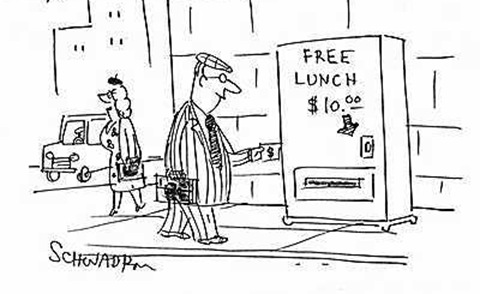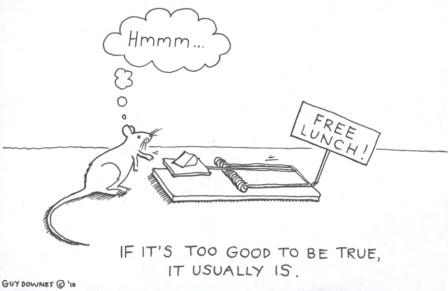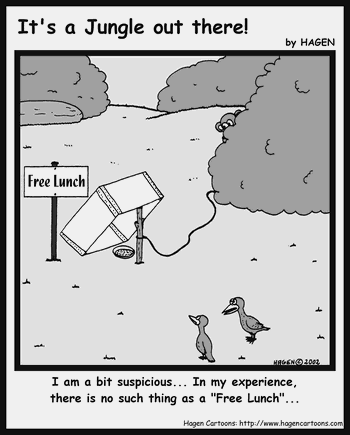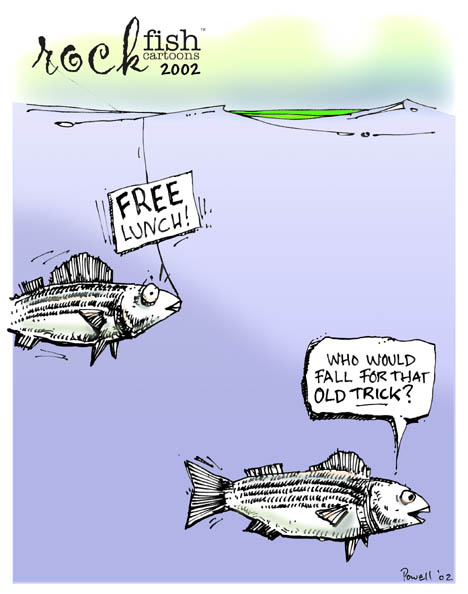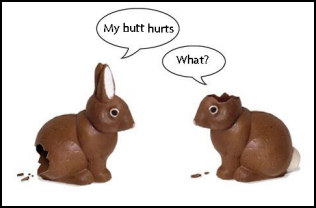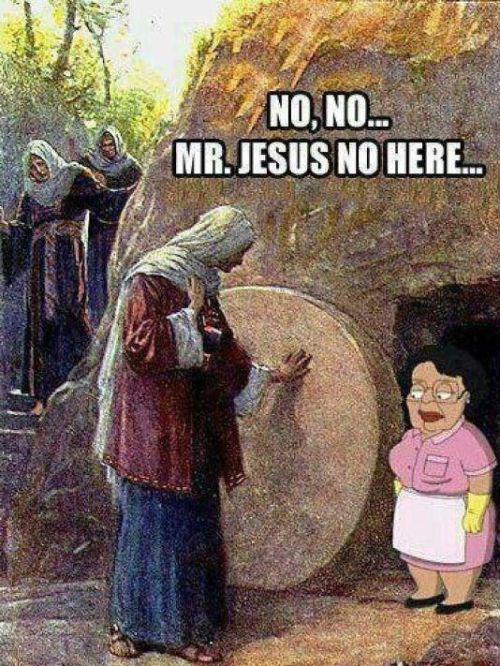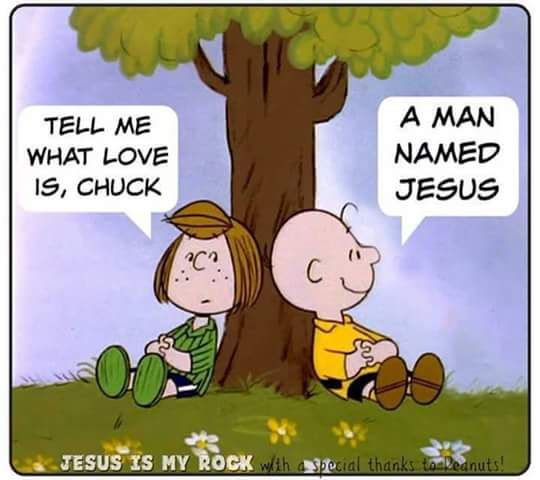Everyone has heard it. You’ve probably said it. It seems clear enough. Everything has a cost. There’s no such thing as a free lunch. But is it true?
The origins of the phrase appears to date back to the 1930s when American bars used to offer a free lunch with the purchase of a drink. The free lunch was totally legitimate, and the food really was free. But there was a catch: the meals had about the same sodium chloride concentration as an entire salt lick for a herd of cows, which left diners thirsty. So they bought another drink. And another. Until they bought so many drinks that they had indirectly paid for their so called ‘free lunch’.
The phrase is now so widespread that everyone knows what it means – even if something appears to be free, there is always a cost: you can’t get something for nothing. It is like the cafe that has a sign that says “Free Coffee”, but it can only be bought in the store cups which cost three dollars. Or the car salesman giving away free cars to anyone who buys two t-shirts, which wait for it, cost $5000 each.
You might get a free pair of running shoes on your health plan, but then pay a slightly higher premium. You may avoid transaction fees when buying foreign money, only to find out the conversion rate was worse.
But is the ‘no free lunch theory’ always true? Are free lunches a myth?
While we are highly and thoroughly conditioned to believe the no free lunch theory, there is one concept that is in total opposition to the ‘no free lunch’ theory”: Grace.
Whether you are a Christian or not, all of us find trusting God hard, as our experience tells us, the world tells us, every other culture, society, religion, business tells us there is no free lunch and that everything costs something. It is right and proper to be suspicious of anything that appears to be free. We look for the catch, we know we have been burnt before, and we will be burnt again unless we are careful. There is nothing wrong with being careful, or checking things out, or having doubts, or making sure of things, but if we don’t accept the possibility of a free lunch, we don’t trust God.
Because not all free things are of no value. Or in other words, some free gifts are of great value.
So when God offers the free gift of forgiveness, it is natural to ask: What’s the catch? How do I earn it? What shall I do to inherit eternal life?
Saint Paul tells us in the book of Romans that sin came into the world through the one man and that all have sinned, and that judgment and death followed that sin. But he also tells us there is a free gift on offer that is nothing like the original sin. Nothing at all like it.
Specifically he has this to say in the book of Romans, at Chapter 5, verses 16 and 17:
“And the free gift is not like the result of that one man’s sin. For the judgment following one trespass brought condemnation, but the free gift following many trespasses brought justification. For if, because of one man’s trespass, death reigned through that one man, much more will those who receive the abundance of grace and the free gift of righteousness reign in life through the one man Jesus Christ”.
Most people find this hard to swallow – God offering a free lunch.
The logic goes like this:
1. It sounds like a free lunch.
2. I know there is no such thing as a free lunch.
3. Therefore I should be suspicious of it.
But this is exactly what God offers: a free lunch, paid in full by Him. The Bible promises that if we trust God with our lives, He will meet all our needs, and be with us even through the valley of the shadow of death – He will guide us in all of our paths.
There is nothing ‘unchristian’ about using the ‘free lunch’ phrase, in business, in society, in schools, in sports, in religions. Humanity is fallen, and everything has to be paid for. But Christianity is the exception. God has put on not just a lunch but a banquet, that is lavish, generous and entirely free. That is the gospel of Jesus Christ.
In a world where there’s no such thing as a free lunch, the gospel speaks of a God who is generous, who is prodigal, wasteful, and excessive. A God who does not stop giving, who freely forgives and fills us with his life. As D. T. Niles once said, Christianity is one beggar telling another beggar where he found bread.
Have found the bread of life, the one truly free lunch?

